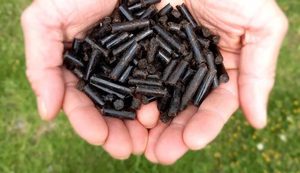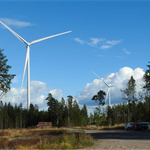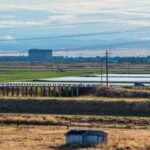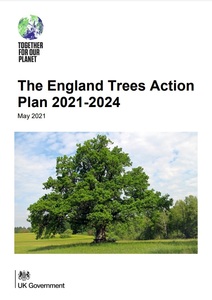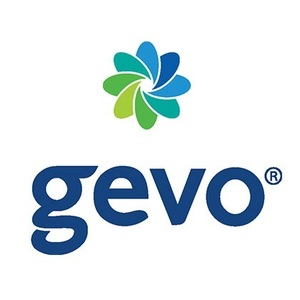Biomass News Roundup
Energy Disrupter
ADVERTISEMENT
Marathon Petroleum Corp. announced the acquisition of a 49.9% interest in LF Bioenergy, an emerging U.S. producer of renewable natural gas (RNG), from Cresta Fund Management for $50 million. The agreement includes the potential for up to an additional $50 million based on the achievement of predetermined earn-out targets.
LF Bioenergy has been focused on developing and growing a portfolio of dairy farm-based, low-carbon-intensity RNG projects. Current projects are under various stages of development, with the first facility nearing completion and expected to be in service in the first half of 2023. As specific project milestones are achieved, MPC is expected to fund its share of capital expenditures, building out this portfolio to produce over 6,500 MMBtu per day by the end of 2026.
Enviva Inc. released fourth quarter financial results on March 1, reporting that the company delivered a record 1.5 million metric tons of wood pellets during the three-month period at higher-than-expected sale prices. Volumes delivered were up 35% when compared to the previous quarter and up 10% when compared to the fourth quarter of 2021. The company also announced three new industrial contracts, including a 10-year, take-or-pay off-take contract related to the production of biofuels, whereby Enviva’s wood pellets are expected to be refined into feedstock for the production of sustainable aviation fuel (SAF) and other renewable fuels. The contract is with an existing global customer, and is related to providing feedstock to a U.S.-based bioenergy facility, with deliveries of approximately 60,000 metric tons per year expected to begin in 2025. Within the past year and a half, Enviva said it has signed three SAF-related contracts that represent approximately 1.9 million metric tons per year of biomass supply at peak run rates. In addition, the company has completed test deliveries to two major oil companies in Europe that are constructing biorefineries and coprocessing biobased feedstock in existing refineries.
Drax Group plc released 2022 financial results on Feb. 23, reporting that the company produced 3.9 million metric tons of wood pellets at its North American facilities last year, up 27% when compared to the 3.1 million metric tons produced in 2021.
According to Drax, the increased wood pellet production reflects a full 12 months worth of production from Pinnacle’s plants following the April 2021 acquisition. It also reflects increased capacity at the company’s Morehouse and LaSalle facilities in Louisiana. In addition, Drax commissioned three new pellet plants last year, including the Demopolis plant in Alabama, and the Leola and Russellville facilities, both located in Arkansas. In September 2022, Drax also acquired a 90,000-metric-ton facility located in British Columbia from Princeton Standard Pellet Corp. Together, those four plants will add more than 500,000 metric tons of production capacity to Drax’s operations when at full capacity. Drax is also working to develop additional North American pellet capacity. In December, the company announced it has made a final investment decision to develop two new pellet projects, including a 450,000-metric-ton-per-year facility at Longview in Washington state and a 130,000-metric-ton expansion of the company’s existing Aliceville plant in Alabama. Drax also plans to develop port infrastructure near the Longview plant.
The Washington State Senate on March 1 voted 46 to 2 in favor of a bill that aims to encourage the manufacture and purchase of sustainable aviation fuel (SAF) though tax incentives. The bill also directs Washington State University to convene a work group to further development of alternative jet fuels. The bill requires the Washington State Department of Ecology, the agency tasked with implementing the state’s Clean Fuels Standard, to allow one or more carbon intensity pathways for alternative jet fuel. A summary of the legislation indicates that the department would be directed to allow biomethane to be claimed as a feedstock for renewable diesel and alternative jet fuel consistent with that allowable for compressed natural gas, liquefied natural gas or hydrogen production. Among many other components, the bill would establish a business and operations (B&O) and public utilities tax credit for certain sales and purchases of alternative jet fuel. The amount of the credit would be $1 per gallon of alterative jet fuel that has at least 50% less carbon dioxide equivalent emissions than conventional jet fuel. The credit would increase by 2 cents for each additional 1% reduction beyond 50%, with a cap of $2 per gallon.
The U.S. EPA in March approved a fuel pathway filed by Martinez Renewables LLC that will allow the California-based biorefinery to generate D5 advanced biofuel renewable identification numbers (RINs) under the Renewable Fuel Standard for liquefied petroleum gas (LPG) made from biogenic waste fats, oils and greases (FOG) via a hydrotreating process.
Martinez Renewables is a 50/50 joint venture between Marathon Petroleum Corp. and Neste Corp. that has converted Marathon’s existing refinery in Martinez, California, to renewable diesel production. The pathway approval document published by the EPA indicates that the Martinez refinery produces LPG fuel from biogenic waste FOG using a process involving hydrotreating with grid electricity, natural gas and hydrogen produced from natural gas via steam methane reforming as energy sources. EPA’s analysis shows LPG produced at the Martinez refinery achieves a 78% greenhouse gas (GHG) reduction when compared to a 2005 diesel baseline. Biobased fuels must achieve a 50% GHG reduction to qualify for the generation of D5 RINs. According to information published by the EPA, the Martinez refinery is also able to generate D4 biomass-based diesel RINs for certain biobased fuels it produces, including renewable diesel.
Legislation currently pending in Minnesota aims to establish a clean transportation standard that would require the state’s transportation fuels to achieve 100% reduction in carbon intensity (CI) by 2050. The standard would phase in with a 25% CI reduction requirement by 2030, ramping up to a 75% reduction by 2040 and a 100% reduction by 2050. A statement released by the Great Plains Institute indicates that, if signed into law, the bill will create the strongest statewide clean transportation standard in the U.S. It would also be the first such standard established in the Midwest
Natural Resources Canada on Feb. 28 announced a $35 million investment in Whitesand First Nation-owned Sagatay Co-Generation Limited Partnership to deploy a 6.5-MW, biomass-fired combined-heat-and-power (CHP) facility.
The plant will be fueled with locally sourced wood waste, reducing the use of diesel fuel for heat and electricity in Whitesand First Nation and the communities of Armstrong and Collins, Ontario.
Once operational, the CHP plant will connect to the local microgrid and provide power for the three communities. According to Natural Resources Canada, electricity generated by the facility will also provide heat and power to a new wood pellet plant and a fully electric wood merchandizing yard. The wood pellet plant has been proposed for longer than a decade and is known as Sagatay Wood Pellet LP. The developers said it is expected to have a nameplate capacity of 90,000 metric tons per year.
Genesis Energy, a New Zealand-based electricity and natural gas retailer, on Feb. 21 announced the successful completion of a biomass burn trial at its as part of its effort to find alternative options for the 953-MW coal-fired Huntly Power Station, New Zealand’s largest thermal power plant. The week-long trial used black torrefied biomass sourced from Canada. According to Genesis, the objective of the trial was to determine the technical viability of operating a Rankine unit solely on biomass. The trial was performed following significant research and work during the preceding year to identify the most suitable type of biomass to use, securing a supply of it from offshore, and understanding the adjustments needed to operate the Rankine.
Earlier in the month, Genesis announced it has signed a biomass agreement with Fonterra, a global dairy cooperative, to work together on exploring the viability of biomass as a substitute for coal. Currently, Genesis burns coal at its Huntly Power Station and Fonterra uses coal to generate heat for dairy processing. The agreement is for an initial period of two years and is designed to allow the companies to collaborate, share knowledge and foster innovation.
PRINTED IN ISSUE 2, 2023 OF BIOMASS MAGAZINE

